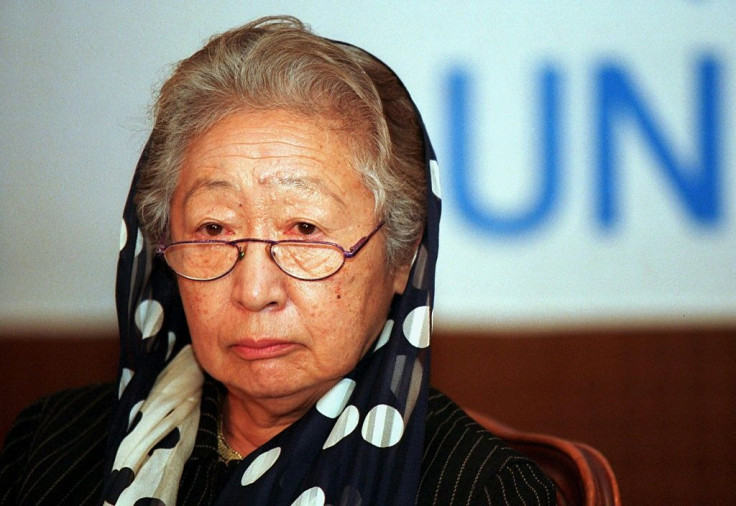Sadako Ogata, First Female UN Refugee Chief, Dies At 92

Japan's Sadako Ogata, the first woman appointed to head the UN's refugee agency, has died at the age of 92, Japan's foreign aid agency said Tuesday.
As UN High Commissioner for Refugees, Ogata was widely respected for her efforts to help refugees and internally displaced people around the world and emphasised making visits to conflict zones during her tenure from 1991-2000.
She worked to help Kurdish refugees from Iraq after the Gulf War and was also known for tackling the refugee crises in the former Yugoslavia and Rwanda.
She was credited with reestablishing UNHCR's credibility and was even touted as a potential successor to former UN chief Boutrous Boutrous-Ghali.
A petite woman with a calm demeanour, she won special praise for her tough action in former Yugoslavia where she managed to draw the world's attention to humanitarian issues despite bitter political disputes among Western countries.
She also served as the head of her country's development aid organisation Japan International Cooperation Agency from 2003 through 2012.
She was known as a passionate advocate for the rights of refugees, urging understanding and compassion for their plight.
"I have seen with my own eyes the despair in the eyes of people who have lost everything, whose loved ones have been killed, whose houses and livelihoods have been destroyed, and who have been forced to flee in the middle of the night with nothing but the clothes on their backs," she said in a speech in 2000.
"But I have also witnessed the courage and resilience of so many people who have lost everything but hope. Refugees are the great survivors of our times and they deserve our respect and our solidarity."
Visionary leader
Ogata died on October 22, but her death was only announced publicly on Tuesday.
"Sadako Ogata set the standard for helping refugees: principled, compassionate, effective," said UN Secretary General Antonio Guterres, himself a former director of the UNHCR.
"As the first woman to serve as High Commissioner for Refugees, she was a pioneer in highlighting not only the impact of violence on women but the imperative of women's involvement in solutions," Guterres added in a statement.
The current head of the UNHCR, Filippo Grandi, called Ogata a visionary leader who transformed "the lives of millions of refugees and others devastated by war, ethnic cleansing and genocide".
Japanese foreign minister Toshimitsu Motegi issued a statement saying Ogata, who also served as the ministry's adviser from 2012 and 2016, "showed an excellent leadership at the front line of global issues such as refugees, poverty and conflicts".
She was born in Tokyo in 1927 into a prominent political family -- her great-grandfather was prime minister Tsuyoshi Inukai and her grandfather was foreign minister Kenkichi Yoshizawa.
She spent her early years abroad including in the United States and China, where her father worked as a diplomat.
Graduating from the University of the Sacred Heart in Tokyo, she went on to obtain a master's degree from Georgetown University and a doctorate from the University of California, Berkeley.
After becoming the first Japanese woman to represent the country at the United Nations in 1976, Ogata served as the Japanese representative at the UN Commission on Human Rights from 1982 to 1985.
© Copyright AFP 2024. All rights reserved.





















